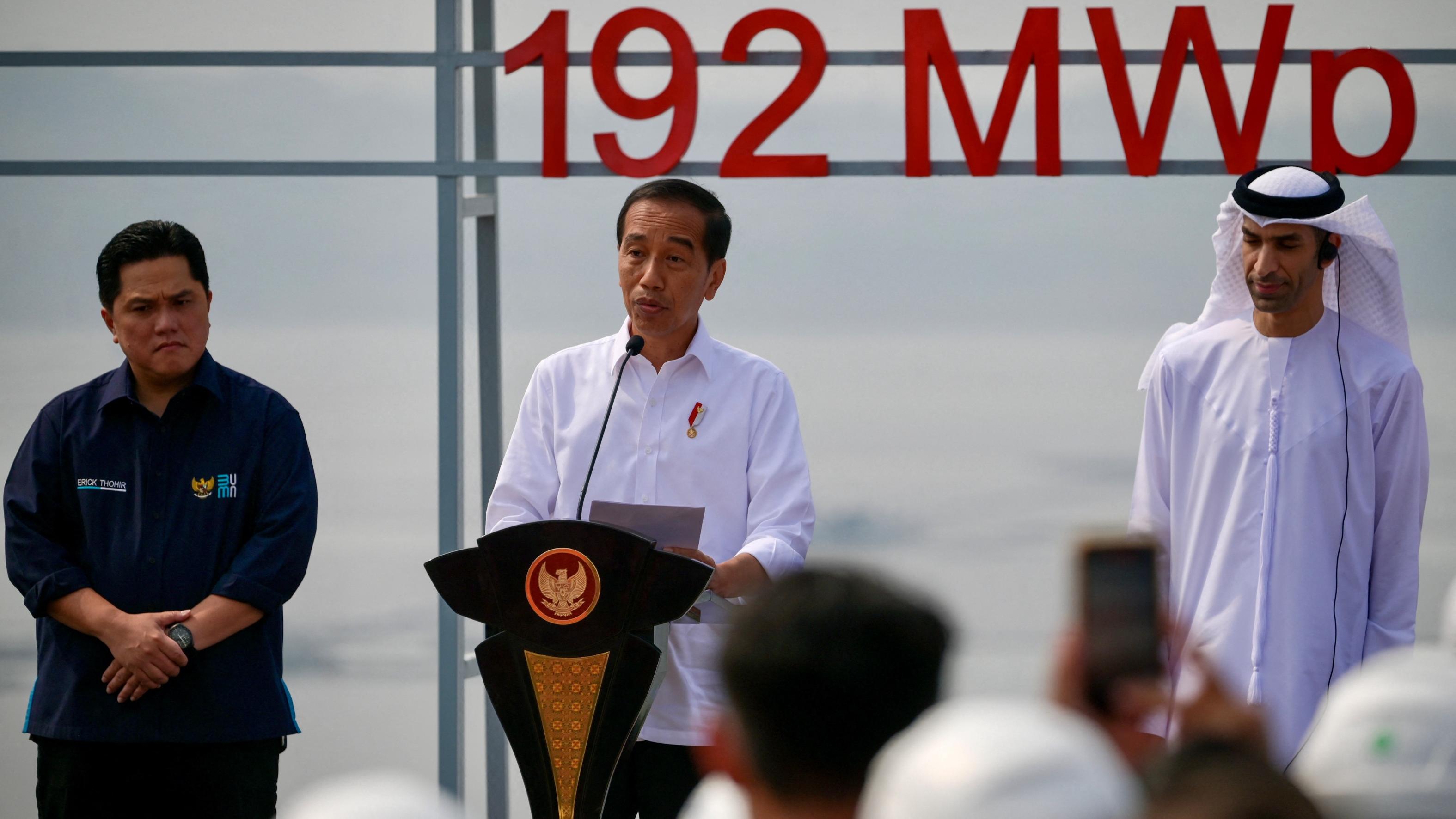 Indonesian President Joko Widodo (center) delivers a speech accompanied by Minister of State Owned Enterprises Erick Thohir (left) and United Arab Emirates (UAE) Minister of State for Foreign Trade Thani Ahmed Al Zeyoudi (right) during the inauguration of the newly built floating solar power plant on the water that can generate 192 mega watts of peak electricity in cooperation between the Indonesian government and Masdar from the UAE, at Cirata Reservoir, West Java, on Nov 9, 2023. (PHOTO / AFP)
Indonesian President Joko Widodo (center) delivers a speech accompanied by Minister of State Owned Enterprises Erick Thohir (left) and United Arab Emirates (UAE) Minister of State for Foreign Trade Thani Ahmed Al Zeyoudi (right) during the inauguration of the newly built floating solar power plant on the water that can generate 192 mega watts of peak electricity in cooperation between the Indonesian government and Masdar from the UAE, at Cirata Reservoir, West Java, on Nov 9, 2023. (PHOTO / AFP)
JAKARTA — Indonesian President Joko Widodo on Thursday inaugurated Southeast Asia's largest floating solar plant, which occupies an area of 250 hectares above the Cirata Reservoir in West Java province.
"Today is a historical day because our big dream of building a large-scale renewable energy plant is finally achieved. We managed to build the largest floating solar plant in Southeast Asia, and the third biggest in the world," Widodo said at the on-grid ceremony.
The power plant was a collaboration project between Indonesia's state electricity corporation
READ MORE: Sunny outlook for solar power in Indonesia
Constructed by China's PowerChina Huadong Engineering Corporation Ltd, the power plant was a collaboration project between Indonesia's state electricity corporation PLN and the United Arab Emirates energy company Masdar, with an investment of $145 million.
Spread over the reservoir surface with more than 340,000 solar panels, the 192-megawatt-peak capacity power plant can produce 300 million kilowatt hours of energy annually, complementing the hydropower generation available in the reservoir.
 Aerial photo shows a view of the Cirata floating solar power plant (PLTS) project at Cirata Reservoir in West Java, Indonesia, on Sept 14, 2023. (PHOTO / XINHUA)
Aerial photo shows a view of the Cirata floating solar power plant (PLTS) project at Cirata Reservoir in West Java, Indonesia, on Sept 14, 2023. (PHOTO / XINHUA)
READ MORE: Presidential decree deepens green push in Indonesia
Widodo also encouraged using renewable energy potential to support the country's efforts to reduce carbon emissions and pursue the target of net zero emissions by 2060.


